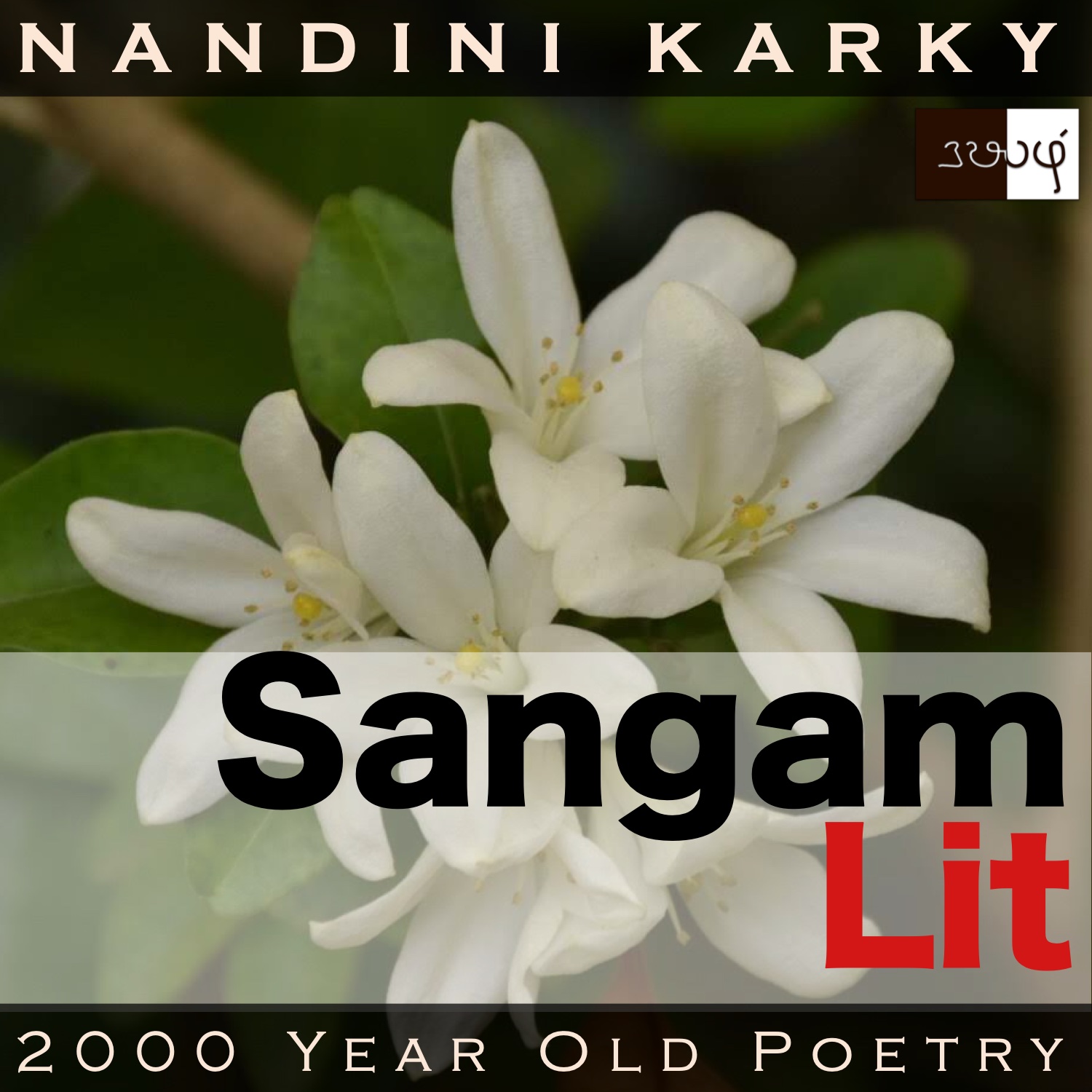Podcast: Play in new window | Download
Subscribe: Apple Podcasts | Spotify | Amazon Music | Android | iHeartRadio | TuneIn | RSS | More

In this episode, we observe the changing seasons and their consequences, as portrayed in Sangam Literary work, Kurunthogai 382, penned by Kurunkeeranaar. Set in the forests of ‘Mullai’, the verse speaks in the voice of the confidante to the lady, allaying the lady’s worry that the man remains parted away even after the promised season of return had arrived.
தண் துளிக்கு ஏற்ற பைங்கொடி முல்லை
முகை தலைதிறந்த நாற்றம் புதல்மிசைப்
பூ அமல் தளவமொடு, தேம் கமழ்பு கஞல,
வம்புப் பெய்யுமால் மழையே; வம்பு அன்று,
கார் இது பருவம் ஆயின்,
வாராரோ, நம் காதலோரே?
‘Not the real rains’ declares a voice in this verse. The opening words ‘தண் துளிக்கு ஏற்ற பைங்கொடி முல்லை’ meaning ‘the wild jasmine which has received moist drops’ talks about the flower that gives this region, its name, and also, indicates the arrival of the rainy season, for wild jasmines and this season are inseparable. In addition to wild jasmines, we get to see another breed of jasmines in ‘பூ அமல் தளவமொடு’ meaning ‘abundant flowers of the pink jasmine’. The phrase ‘வம்புப் பெய்யுமால் மழையே’ meaning ‘these rains are not the seasonal rains’ echoes the core theme. Ending with the words ‘வாராரோ நம் காதலோரே’ meaning ‘won’t he come, that lover of yours’, the verse welcomes us to learn more.
A picturesque scene of rains and flowers but one that seems not to bring joy in the lady. The context reveals that the man and lady were leading a happy, married life when the man parted away to gather wealth. Before he leaves, he promises to return by a particular season. Seeing that season approach, the lady becomes worried. At this time, confidante says to the lady, “Taking in moist rain drops, the wild jasmine on green vines, opens its buds, and the resulting fragrance spreads over the bushes and along with the dense flowers of the pink jasmine, wafts with the scent of honey, because of these unseasonal rains; If it’s not unseasonal, and if it is indeed the rainy season, wouldn’t he have returned, this lover of yours?” With these words, the confidante assures the lady that the man would return as he promised.
Cool drops are falling down and jasmines are blooming, and yet, the confidante claims the rainy season had not arrived. Let’s follow her words closely to find her intention. She starts by talking about how the wild jasmine flowers have accepted the fall of raindrops and nudged by their moisture, they have opened their buds, letting out an exquisite scent. This scent rises up and moves over the bushes, where it meets with another kind of jasmine, which too, is opening buds just then, and now, both the scents fuse together and spread all over the land, with the fragrance of honey, the confidante says. Continuing, she adds, ‘While that may be, it’s not the time for rains yet. It’s nothing but unseasonal rains brought down by the confused clouds’. To explain why she thinks so, the confidante simply concludes with the words that if it indeed was the real rains, the man would have returned home to the lady!
Here, the confidante places more faith in the word of the man rather than events in nature. In truth, it’s the real rains, for you can’t fool the flowers, which have been attuned to these clues from time immemorial. Even as the confidante knows that for a fact, to allay the anxiety of her friend, the confidante chooses to speak this white lie. If it will bring relief to an aching heart, even a lie will do, seems to be the confidante’s motto. How about you? Would you hide a truth to bring relief to someone or would you think it’s better they face the truth? The obvious answer to this question is, ‘It depends!’. However, it would be an exercise in mindfulness if we can step back and observe how we deal with such inner conflicts between speaking the truth and saying a harmless lie, with different people and at different times!




Share your thoughts...